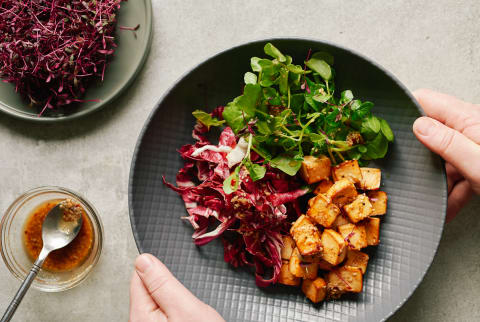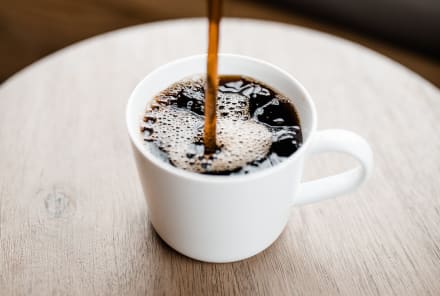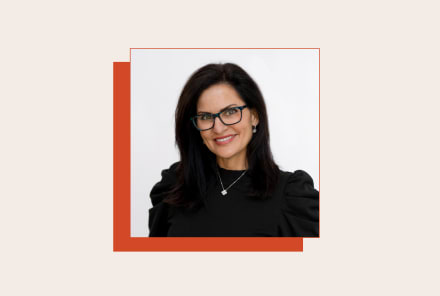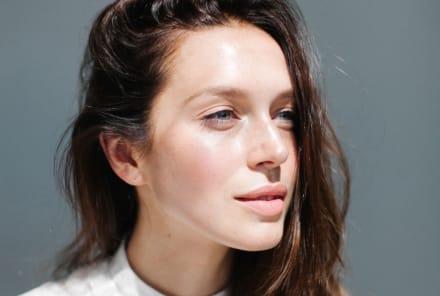Advertisement
The One Thing A Gastroenterologist Recommends For Optimal Gut Health


If we could all consult our favorite experts to ask them questions about health, medicine, art, and life in general, we wouldn't miss that opportunity.
The point is, we all have our "what would you do if you were me?" questions, which is why I'm excited to share my answer. When it comes to advocating one thing for my patients, my family—heck even my frenemies—it's an easy choice for me: Go plant-based.
It sounds simple enough, right? Eat more things grown from the Earth and call it a day. But there's more to it than that, like does going plant-based mean you have to be a vegan? No. Is broccoli included? Yes. Here's what plant-based means and why I think it's such a big deal.
Why does diet even matter?
The food we put in our mouths is a driving factor behind your health and plays a big part in deciding whether or not you are at risk for certain diseases. Only 20% of disease is thought to be genetic. That means that 80% of your lifetime risk for disease is dependent on your lifestyle.
On top of that, we are also consuming three times more meat in the United States than the average person on our planet. And what's fallen by the wayside is—you guessed it—plants. Just 10% of the American diet is real fruits, vegetables, legumes, whole grains, seeds, and nuts.
But why plant-based?
Every single fruit, vegetable, whole grain, seed, nut, and legume has a unique mix of nutrients, including fiber, protein—yes, plants have protein—healthy carbohydrates and fats. They also contain vitamins and minerals, along with phytochemicals, sulforaphane, and fiber.
Phytochemicals are chemicals found exclusively in plants that work to protect that plant from diseases, and fun fact: Research shows they do the same thing for humans.
Sulforaphane is part of a family called isothiocyanates that you'll find in our cancer-fighting foods, the cruciferous vegetables. Eating sulforaphane-rich veggies1 may protect against cancer through seven mechanisms: less inflammation, sharper brain, better mood, improved cardiovascular health, and more insulin sensitivity. It even flips the body into fat-burning mode2 for weight loss. And as a gut health expert, how could I not mention that it reverses dysbiosis3? More healthy gut microbes, more butyrate, and repair of the tight junctions that break down in leaky gut.
Fiber is one of my favorite topics, as you may have guessed from the title of my forthcoming book, Fiber Fueled. A plant-based diet means more fiber and—let me tell you—we need it. Prebiotic fiber is food for your gut microbes. When they feast on it, they release postbiotic short-chain fatty acids (SCFAs) that have healing effects throughout the body.
SCFAs strengthen the good gut microbes and weaken the inflammatory bad ones. They also close the holes in the colon that are often referred to as "leaky gut," optimize the immune system, lower cholesterol, and regulate blood sugar. Not to mention that SCFAs protect humans from killers like heart disease, stroke, and cancer and even cross the blood-brain barrier to improve brain function. In short, they are powerful.
Plants have a complete monopoly on phytochemicals and fiber. No competition. You won't find them anywhere else. So if you're liking what I'm telling you, eat more plants.
What does science say about a plant-based diet?
If you want to see a plant-based life in action, then all you have to do is turn to Dan Buettner and his works with Blue Zones—the five geographic locations of the world that have been discovered to house the longest-lived populations in the world. Loma Linda, California, is the only Blue Zone in America.
So, what does this have to do with eating more plants? Well, you might have guessed this much: All five are at least 90% plant-based, relying on seasonal fruits and vegetables, legumes, whole grains, and nuts. Cow's milk is not a part of their diet, and meat is consumed sparingly, using it as a celebratory food, a small side, or a way to flavor dishes.
And yes, there is a strong body of medical literature beyond the Blue Zones. to suggest that plant-based is the way to go. In fact, a recent list published by U.S. News and World Report ranked the top diets of 2020 and guess what? The entire top 10 list included versions of a plant-based diet.
Do I have to be vegan to be plant-based?
When I say "plant-based," I mean a diet that's mostly plants. So, no, you don't have to be vegan to reap the benefits of a plant-based diet.
I'm talking about real food: fruits, vegetables, whole grains, seeds, nuts, and legumes. Stuff that grows in dirt and existed 200 years ago.
Look, I don't want you to feel overwhelmed by the changes I'm suggesting before you even get a chance to begin. This is not an "all or nothing" phenomenon. It's about progress over perfection and starting wherever you are and working toward your goal. Getting there will definitely take time. It did for me. So cut yourself a little slack and accept that this is a process.
Do you have to stop at 90%? Nope. In fact, I would encourage you to keep going if that's what makes you feel good. After being a pescatarian for several years, it was that last 10%, when I finally cut fish, dairy, and eggs, that helped me lose 15 extra pounds I had been lugging around for far too long. And while losing weight isn't the point of going plant-based, being the healthiest version of you is, which may include shedding a few pounds to hit your healthy weight.
Bottom line, you are a completely unique individual with a microbiome as distinct as your fingerprint, so you will need to individualize your approach on this journey toward plant nirvana.
3 Sources
- https://www.ncbi.nlm.nih.gov/pubmed/30954362
- https://www.ncbi.nlm.nih.gov/pubmed/?term=Sulforaphane+Attenuates+Obesity+by+Inhibiting+Adipogenesis+and+Activating+the+AMPK+Pathway+in+Obese+Mice
- https://www.ncbi.nlm.nih.gov/pubmed/?term=Sulforaphane+Normalizes+Intestinal+Flora+and+Enhances+Gut+Barrier+in+Mice+with+BBN-Induced+Bladder+Cancer
Watch Next
Enjoy some of our favorite clips from classes
Enjoy some of our favorite clips from classes
What Is Meditation?
Mindfulness/Spirituality | Light Watkins
Box Breathing
Mindfulness/Spirituality | Gwen Dittmar
What Breathwork Can Address
Mindfulness/Spirituality | Gwen Dittmar
The 8 Limbs of Yoga - What is Asana?
Yoga | Caley Alyssa
Two Standing Postures to Open Up Tight Hips
Yoga | Caley Alyssa
How Plants Can Optimize Athletic Performance
Nutrition | Rich Roll
What to Eat Before a Workout
Nutrition | Rich Roll
How Ayurveda Helps Us Navigate Modern Life
Nutrition | Sahara Rose
Messages About Love & Relationships
Love & Relationships | Esther Perel
Love Languages
Love & Relationships | Esther Perel
What Is Meditation?
Box Breathing
What Breathwork Can Address
The 8 Limbs of Yoga - What is Asana?
Two Standing Postures to Open Up Tight Hips
How Plants Can Optimize Athletic Performance
What to Eat Before a Workout
How Ayurveda Helps Us Navigate Modern Life
Messages About Love & Relationships
Love Languages
Advertisement

New Study Confirms The 3 Habits That Age Your Brain Faster
Molly Knudsen, M.S., RDN
















